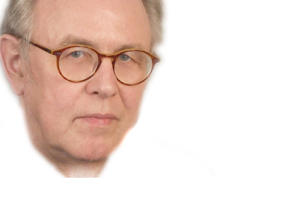Ausgrenzung liegt im Wesen sozialer Strukturen

Dr. Günther Grewe, WP RA StB CPA
+49 89 2351 3218 (15-23h CET / 9am-5pm EST)
+1 914 816 1115
Grewe@WP-RA-usa.com
![]() Grewe@WP-RA-usa.com
Grewe@WP-RA-usa.com
Justice as Order through Structured Social Inequality
Modeling Marginality and Deviance Through Status Bargaining Games
Abstract
The study develops game-theoretic models grounded in the concept of marginality to elucidate the relationship between social status and perceived behavior. Marginality refers to possessing a social status that is:
- Ubiquitous – marginal positions exist across social entities
- Scarce – marginal statuses are limited in number
- Relative – marginality depends on ranking within a group structure
Analyses reveal the probability of powerful actors labeling an individual as deviant or “criminal” often correlates inversely with the status held. Findings suggest iterative status “games” can systematically disadvantage those in marginal societal positions.
By examining interdependent marginalization dynamics and movements within social hierarchies, the thesis clarifies forces behind deviation designations and status fluidity. It connects with current sociological interests in unpacking intersections of relative rank and collective evaluations.
Relation to Ongoing Work
Builds on research into:
- Status gain/loss in groups (Anderson et al., 2021)
- Enforcement bias against marginalized groups (Brown et al., 2019)
- Status construction theory (Ridgeway, 2014)
References
- Anderson, C., Kraus, M. W., Galinsky, A. D., & Keltner, D. (2021). The local ladder effect: Hierarchical goals structure shapes perceptions of social status. Journal of Personality and Social Psychology. https://doi.org/10.1037/pspi0000195
- Brown, R. A., Frank, J. A., Jacobs, B. A., & Owens, C. D. (2019). Policing and neighborhoods: The multifaceted connections. Annual Review of Sociology, 45, 171-187. https://doi.org/10.1146/annurev-soc-073018-022524
- Ridgeway, C. L. (2014). Why status matters for inequality. American Sociological Review, 79(1), 1–16. https://doi.org/10.1177/0003122413515997
Ultimately, the monograph constitutes a significant contribution to bridging economics, sociology, and criminology. In illuminating the contingency in social constructions of deviance and prestige, it delivers an incisive critique of inequality and control. The integrated framework remains highly relevant for understanding justice, marginality, and stratification.
He previously published “Straßenverkehrsdelinquenz und Marginalität” (Lang: 1978), a study on the possibilities and limitations of regulating social behavior through law and law enforcement.
Dr. Günther Grewe – New York – München – www.WP-RA-usa.com
Grewe, Günther – Games for Criminal Status: Justice as Order through Structured Social Inequality – Frankfurt am Main, Bern, Las Vegas: Lang, 1979 – (European University Papers: Series 2, Law; Bd. 210) ISBN 3-8204-6480-8
(Download PDF Version or Microsoft Word Version)
To read the full version, click hier.
Copyright © 1997-2024, Dr. Grewe & Partners, CPAs, LLP